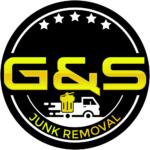October 11, 2024
Although people often use terms like “trash” and “garbage” as if they’re the same, these waste categories serve different purposes in effective waste management. By understanding the distinction between trash, garbage, and junk, you’ll be better equipped to handle waste responsibly, keeping your home and the environment cleaner.
Defining Trash
Trash generally refers to non-kitchen and non-bathroom waste. This category includes things like leaves, branches, or other yard waste, as well as non-recyclable or non-hazardous items such as plastic packaging or broken household objects. Trash tends to include materials that don’t decompose quickly or aren’t hazardous but aren’t suitable for recycling either. It’s essentially the waste leftover from daily activities that doesn’t pose any major health risks, but still needs proper disposal.
What Counts as Garbage?
Garbage, on the other hand, comes from the kitchen and bathroom. Food scraps, used tissues, and other personal care items fall into this category. Garbage typically contains organic material that can break down, potentially attracting pests or generating unpleasant odors. Managing garbage properly, through regular collection and disposal, is crucial to maintaining cleanliness and avoiding the spread of diseases.

Understanding Junk
Junk is different from both trash and garbage because it often involves bulkier, heavier items that are no longer functional or wanted. This can include old furniture, appliances, broken electronics, or other large household items. Due to their size, these objects can be harder to dispose of and may require special handling. Responsible junk removal services help ensure these items are disposed of, recycled, or donated in a way that minimizes environmental harm.
Distinguishing Trash from Garbage
While the terms trash and garbage are often used interchangeably, they refer to distinct categories of waste. Trash includes non-biodegradable items, such as paper, plastic, or yard debris, while garbage is primarily organic waste from the kitchen and bathroom. Garbage tends to decompose faster and, when not managed properly, can attract pests and cause unpleasant smells. The two categories require different methods of handling and disposal, so understanding the difference is key to effective waste management.
By separating trash from garbage, you ensure that each type of waste is processed in the most suitable way, reducing landfill waste and supporting recycling and composting efforts. This practice helps maintain cleanliness while lowering the overall environmental footprint.
The Role of Waste Removal Services
Proper trash and garbage disposal play a vital role in protecting public health and the environment. Efficient waste removal reduces the risk of biohazards contaminating soil, water, and air. For example, improper handling of metals, chemicals, or other materials can lead to harmful environmental impacts. Specialized waste removal services, such as those offered by G&S Junk Removal, use techniques that prevent this kind of contamination.
Waste management services also promote recycling and the reuse of valuable materials, helping conserve natural resources and reducing the amount of waste sent to landfills. Beyond environmental benefits, well-organized waste removal can prevent the spread of diseases, offering a cleaner and safer living environment.
Team Up With G&S Junk Removal for Cleaner Communities
Understanding the difference between trash, garbage, and junk is fundamental to maintaining a healthy and sustainable world. Proper waste management doesn’t just reduce pollution and health risks, but also supports the conservation of natural resources.
For those looking to get rid of unwanted waste responsibly, G&S Junk Removal is here to assist. With a focus on eco-friendly practices, we offer a range of services to help manage your trash, garbage, and junk. Join our efforts for a cleaner, greener future by booking an appointment with G&S Junk Removal today.
